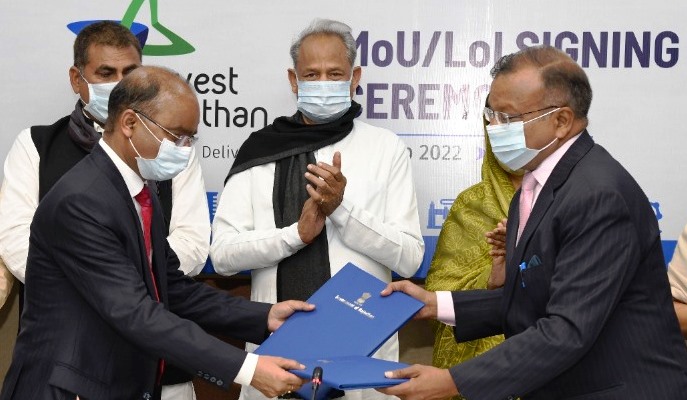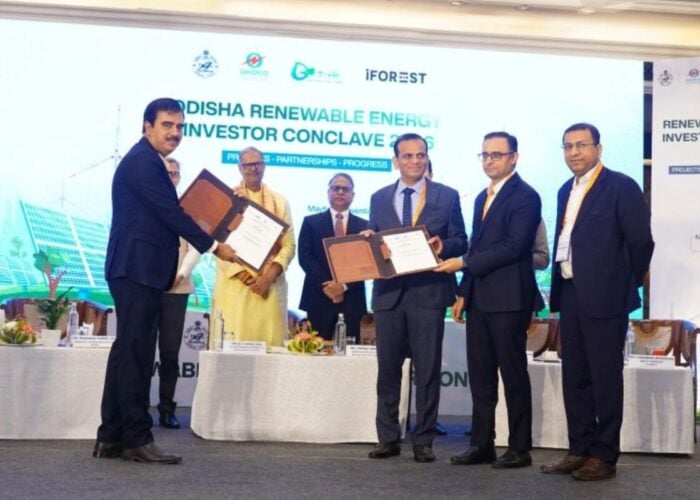
The signing ceremony with senior SJVN and Government of Rajasthan officials. Image: SJVN.
Indian state-run hydropower company SJVN is planning to deploy 10GW of solar PV in Rajasthan over the next five years through a INR50,000 crore (US$6.7 billion) investment.
Try Premium for just $1
- Full premium access for the first month at only $1
- Converts to an annual rate after 30 days unless cancelled
- Cancel anytime during the trial period
Premium Benefits
- Expert industry analysis and interviews
- Digital access to PV Tech Power journal
- Exclusive event discounts
Or get the full Premium subscription right away
Or continue reading this article for free
Confirmed during a signing ceremony in August but announced this week (8 February), the plans will see the solar projects built on land supplied by the Rajasthan Renewable Energy Corporation after state authorities accepted the proposal. An MoU is due to be signed shortly.
Electricity generated from the projects will be distributed via Power Purchase Agreements (PPAs), taking advantage of “competitive tariff-based opportunities available in the market”, said SJVN chairman and managing director Nand Lal Sharma.
Rajasthan – one of the three states that make up the vast majority of PV deployment in India – was an ideal location for the projects, said Sharma.
“The state has the largest solar power potential in the country,” he said. “It receives the highest solar radiation (5.72kWh per meter square per day) and also has the highest number of more than 325 clear sunny days in a year [sic]. All these factors work in our favour of developing the projects.”
Sharma said that, in line with government climate objectives, the state-run company was reorientating to prioritise renewables deployment.
At COP26 India committed to 500GW of renewable by 2030, including 280GW of solar, and pledged to reach net zero by 2070, which was received with disappointment in some quarters but was in keeping with what most analysts predicted given the country’s energy needs.
At the start of the month, the Indian government released it ‘game changing’ budget for the upcoming year, which included a combination of carrot and stick measures to drive PV manufacturing and in turn deployment in the country.
A Basic Customs Duty (BCD) on solar products has been established to stimulate domestic manufacturing, while an increasingly well-funded Production Linked Incentive (PLI) scheme has been designed to support the development of an Indian industrial base for solar.
However, Fitch Solutions has warned that India is at risk of a supply and demand mismatch for solar equipment if domestic PV manufacturers are unable to meet the quantity and quality required by project developers.
PV Tech Premium has broken down the key mechanisms and avenues available to businesses looking to set up manufacturing facilities in India, as well as laying out the instruments for investing in the country’s growing solar sector more broadly.






